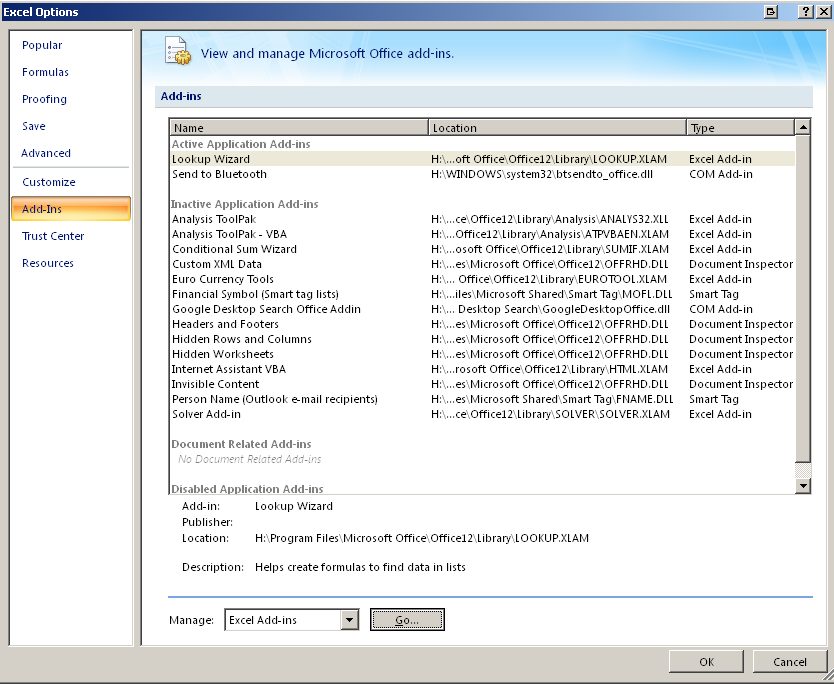

We've again made substantial performance improvements to Aggregation functions (SUMIFS, COUNTIFS, AVERAGEIFS, etc.), RealtimeData (RTD), and lots more for significant decreases in calculation time. We listened, and the team set to addressing those areas where we could make the most significant performance improvements possible and deliver them in the shortest time. For instance, we discovered that many heavy, institutional Excel users were less than thrilled with Excel’s performance when they upgraded from Office 2010 to newer versions. In fact, many of the improvements we have made recently were direct responses to customer pain points. We constantly seek customer feedback regarding what we can do to make a better product, and implement positive suggestions whenever we can. You need to change these variables for both file types to correct the problem.Here on the Excel team, we’re always working to improve Excel’s performance and stability. For excel XLSX file types for Excel 2007 files, start with the step where you click on the "Advanced" button and repeat. Under "C:\Program Files\Microsoft Office\Office12\EXCEL.EXE/ e," change the last part of this string to / e "%1." Don't forget to add the quotes around "%1" leaving out the period. Click on the "Advanced" button, choose "Open," and select the "Edit" button.
#MICROSOFT EXCEL ONLINE SLOW WORKING ON IT WINDOWS#
From Windows Explorer, go to "Select Tools" folder options from the menu, choose the file types tab to select the XLS file type for Excel 97-2003 files. If you still use Windows XP with your version of Office 2007, correct the problem by readjusting the file settings in Explorer. The problem lies with the individual file types accessed by Excel. Opening Excel 2007 from the desktop icon, from Explorer or an Outlook attachment can often take a while to load the spreadsheet when the Explorer settings are incorrect.

To correct the problem, fix it in the registry editor by changing the DWORD value labeled "DisableRobustifiedUNC" to a value of 0 under this heading in the editor: "HKEY_CURRENT_USER\Software\Microsoft\Office\12.0\Excel\Options." If you don't have experience editing the register, have someone familiar with the process make this change for you, as you can seriously affect your computer's performance if you do it incorrectly. Spreadsheet load times can last as long as five minutes when using the OFV add-in. This scenario typically applies when pulling a file from a network location. The add-in was meant to thwart binary file format attacks by outsiders or viruses. The add-in provided additional security features to ensure that the binary files of Office documents complied with the expectations set by the application. An add-in released by Microsoft in Office 2010, which included updates for Office 20, called "Office File Validation" can slow down Excel when it loads a spreadsheet.


 0 kommentar(er)
0 kommentar(er)
